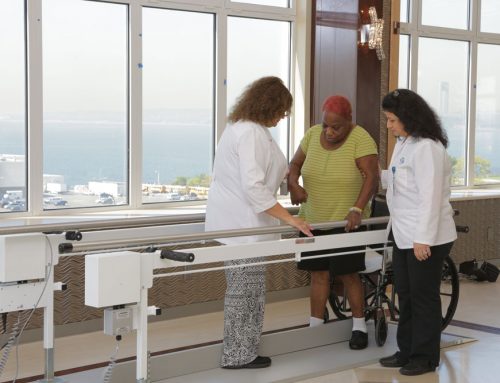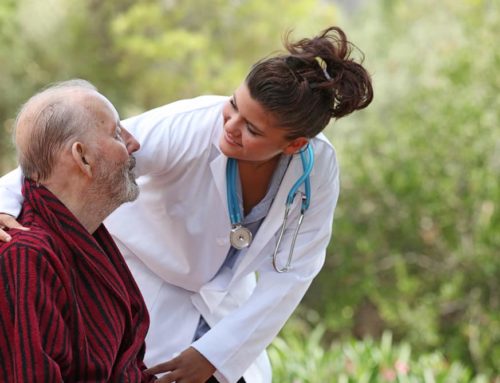Chronic Obstructive Pulmonary Disease (COPD) is a group of diseases that attack the lungs. They inflame the lungs, restrict air flow, and cause breathing difficulties. Symptoms including coughing, wheezing and excess mucus production.
Chronic bronchitis and emphysema are the most common conditions associated with this disease. It’s vital to get medical assistance, the right respiratory care and treatment so you can manage your symptoms.

Four Stages of COPD
The four stages of COPD are as follows:
Stage I: Mild. You may not notice symptoms for a while, including shortness of breath and coughing.
Stage II: Moderate. Symptoms include a persistent cough, shortness of breath, wheezing, trouble sleeping and fatigue.
Stage III: Severe. You may experience more respiratory tract infections, chest tightness, trouble taking a deep breath, and wheezing when doing basic tasks. You may also experience swelling in the feet, ankles and legs.
Stage IV: Very severe, also known as “end-stage” COPD. The patient will notice a reduction in their quality of life, with difficulty breathing, as lung damage worsens. Symptoms include constant wheezing, increased blood pressure, increased heartbeat, loss of appetite, delirium.
What Is The Life Expectancy?
Life expectancy depends on the overall severity of the condition, your medical history, and the standard of healthcare you receive.
As the disease progresses to stage IV, life expectancy obviously decreases. People who suffer from COPD are at increased risk of developing lung cancer, heart disease and other life-threatening conditions.
However, if your doctor diagnoses the disease early, you can expect good results and enjoy a decent quality of life. In fact, with the right care, and with luck, you can expect to live for a considerable time.
Can A Person With COPD Get Better?
There is no quick fix for chronic lung conditions, and they tend to worsen over time. However, COPD is treatable. With the right care and treatment, a positive outlook, and emotional support, symptom control is possible.
A major aim of treatment is to maintain a patient’s mobility and independence. Pulmonary rehabilitation and simple things like breathing exercises can make a huge difference if properly supervised. Avoiding polluted air is important, and you definitely should not smoke if you have COPD.
Treatment includes special inhalers called bronchodilators, oral steroids, antibiotics for infections, pulmonary rehabilitation, and breathing exercises.
Haym Salomon Home for Nursing and Rehabilitation in Brooklyn NY provides skilled nursing care services around the clock. Our multilingual care teams have lots of experience in getting the medication balance right. And our rehab and gentle physical exercise programs are designed to keep you mobile while alleviating breathing difficulties. Rest assured that patients are given the loving care and tailored treatment they require to tackle each stage of COPD.
Do contact us today or walk in if you would like to find out more about our care and treatment services. We accept most insurance plans, including Medicare, Medicaid, HMO PPO EPO Plans, MLTC’s and private care. Our finance coordinators are here to help you smooth out the issues you may face. Feel free to come and see things for yourself.
This content comprises informative and educational resources only and can not be considered as a substitute for professional health or medical guidance. Reliance on any information provided in this article is solely at your own risk. If you have any inquiries or apprehensions about your medical condition or health goals, talk with a licensed physician or healthcare provider.






Leave A Comment